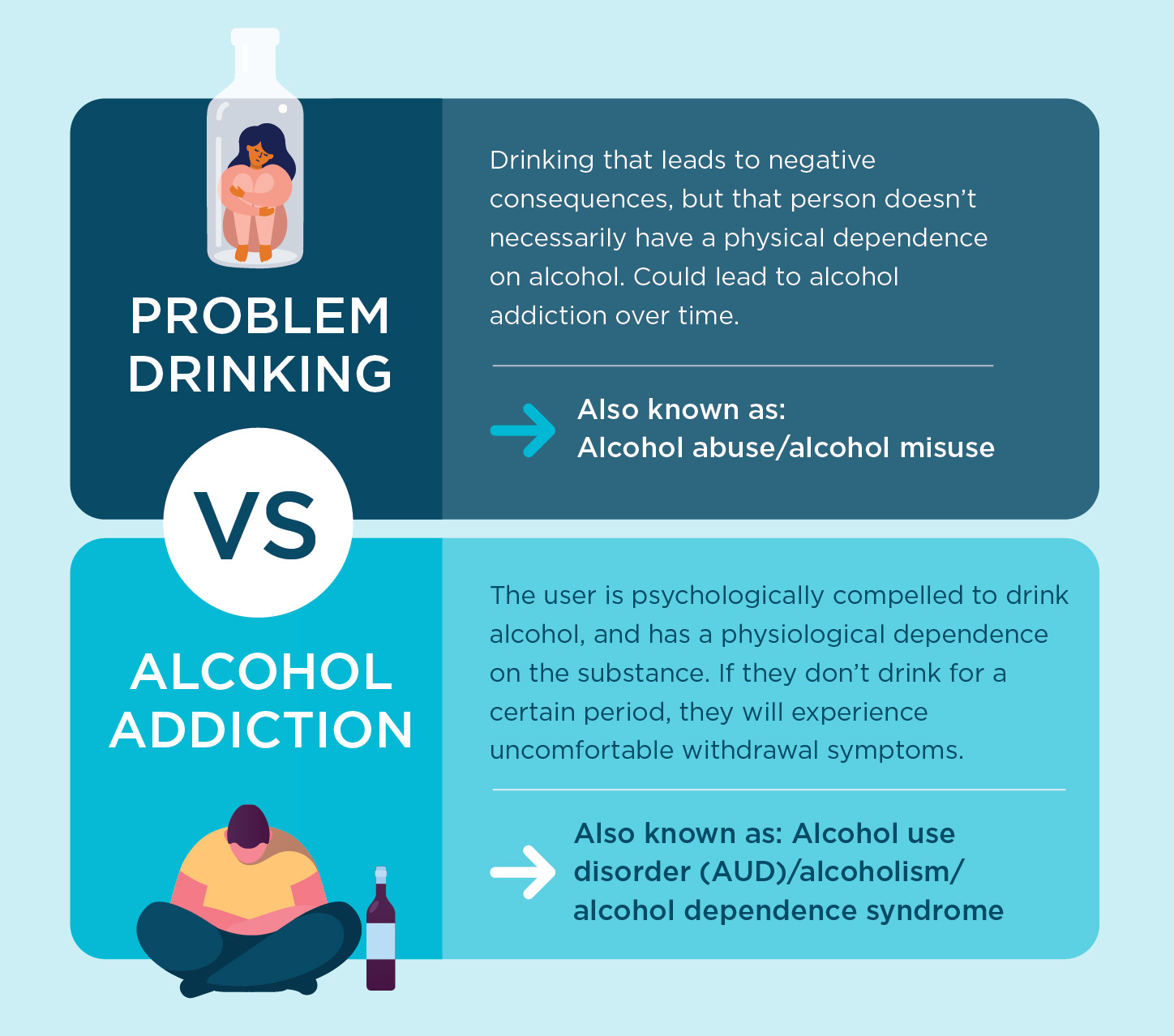Spotting the signs of secret drinking
Harmful alcohol use doesn't always appear in plain sight. Here are some signs that a loved one might be hiding their alcohol consumption.
Harmful alcohol use doesn't always appear in plain sight. Here are some signs that a loved one might be hiding their alcohol consumption.



Many people with a drinking problem become good at concealing or minimising it. As a concerned family member or friend, it can be difficult to spot a loved one’s problem with drinking if they're going to great lengths to hide it.
In this article, we will outline some of the key signs of a secret drinker, and whether these could be a sign of harmful alcohol use.
If someone is hiding, downplaying or concealing the amount of alcohol they consume, it could be a sign that they're hiding a drinking problem. It might leave you, as a concerned friend, unsure about the true extent of their problem.
Look out for these key indicators of someone who might be concealing a drinking problem:
Secret drinking is just one of many potential signs of alcoholism, but it doesn’t automatically mean the person has an addiction to alcohol. Nor does it mean that someone who isn’t a secret drinker can’t be suffering from alcoholism. Everyone’s circumstances are different, and the symptoms they show will differ.
An important distinction to bear in mind is harmful drinking vs alcohol addiction. Many secret drinkers are engaging in harmful drinking, but wouldn’t yet be considered within the more medical construct of alcohol addiction (or alcoholism). Alcoholism is also likely to include other common signs of alcoholism.
Here are some examples:

There are also some common behaviours of alcohol addiction to look out for, which could be another indicator of the extent of a loved one’s problem.
For example, have you ever noticed a reduction in their inhibitions or impulse control? Anger and reckless or dangerous behaviour can be a sign of alcohol altering how we behave. Another key thing to look out for is a drop in motivation. They might lose interest in things they used to love, or struggle to motivate themselves at work.
Due to the nature of secret drinking, it can be tricky to know what your loved one is experiencing and how serious their problem is. The most important thing to remember is that the earlier harmful use is recognised and addressed, the better outcomes for their recovery. If you’re in any doubt your loved one has a drinking problem, help them to acknowledge it before they develop a physical dependency.
The reasons someone might have for hiding the extent of their alcohol consumption can be varied and complex. They may wish to protect their loved ones so they don’t worry, feel shame or guilt about how much they're drinking, or wish to hide their addiction from their employer to avoid damaging their career.
They may simply be in denial about their alcohol problem. Admitting you have a problem with alcohol and are in need of support is a brave step to take.
Billy Henderson, Addiction Treatment Manager at Priory Hospital Glasgow, gives some advice on what someone suffering with alcoholism might be experiencing when they decide to hide it: “It can be a disease of isolation and of secrecy. The people around the drinker may not notice, and the actual drinker may also not know they suffer from it. Alcoholism tells the individual they don’t have it; this is called denial.”
It’s important to remember that, in the mind of someone with an alcohol problem, their decision to hide their drinking may be a logical one. They might wish to protect their friends and family from the realities of their problem, or simply be in self-preservation mode, not wishing to open up to their struggles. Admitting your drinking is out of control takes courage, kick-starting a lifelong endeavour of recovery and sobriety.
Remaining non-judgemental of someone’s reasons for being secretive around alcohol use is key to helping them overcome their issues.
If your loved one is showing some of the signs of alcoholism, it might be time for you to increase your attempts to offer support. It can be difficult to know how to approach this, but there are ways you can help and support someone with an alcohol problem without making them feel guilt or shame about the situation.
Be selective when choosing the right time and place to open up about your concerns for your loved one. Approaching them in private, when they’re sober, can help to keep them calm and not feel ambushed. Remain compassionate throughout, keeping the focus on you by saying things like “I’m worried about you”. It’ll help them feel less defensive and more open to discussion.
Once that initial conversation has taken place, it’s important you don’t enable their secretive behaviour. Things like making excuses for them to friends or family or phoning in sick for them at work are examples of enabling their behaviour. Allow them to take responsibility for their actions – aiding their recovery in the long-run.
Whether it's hidden or in plain sight, alcoholism can be a brutal condition for people suffering with it and those around them. But be assured, recovery is within reach – something effective treatment can bring about. You could help your loved one on their recovery journey by supporting them to get the help they need.
You could encourage them to make an appointment with their GP and offer to go along with them for moral support. Alternatively, you could get in touch with a private provider of alcohol addiction treatment like Priory. We have a network of world class rehab facilities, staffed with the very best experts.
Use the information below to book a free addiction assessment, where we can discuss our treatment programmes, speak to your loved one about their struggles with addiction, and help them take a vital step in their recovery.
